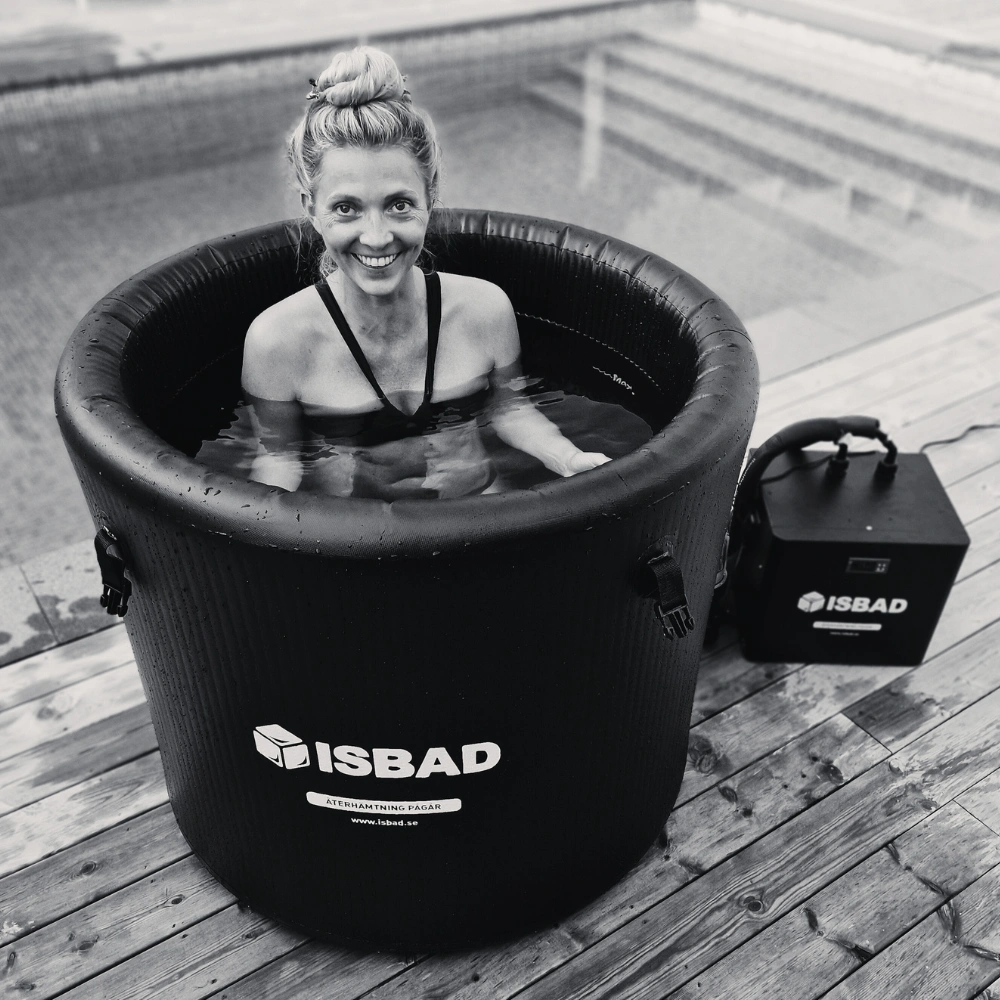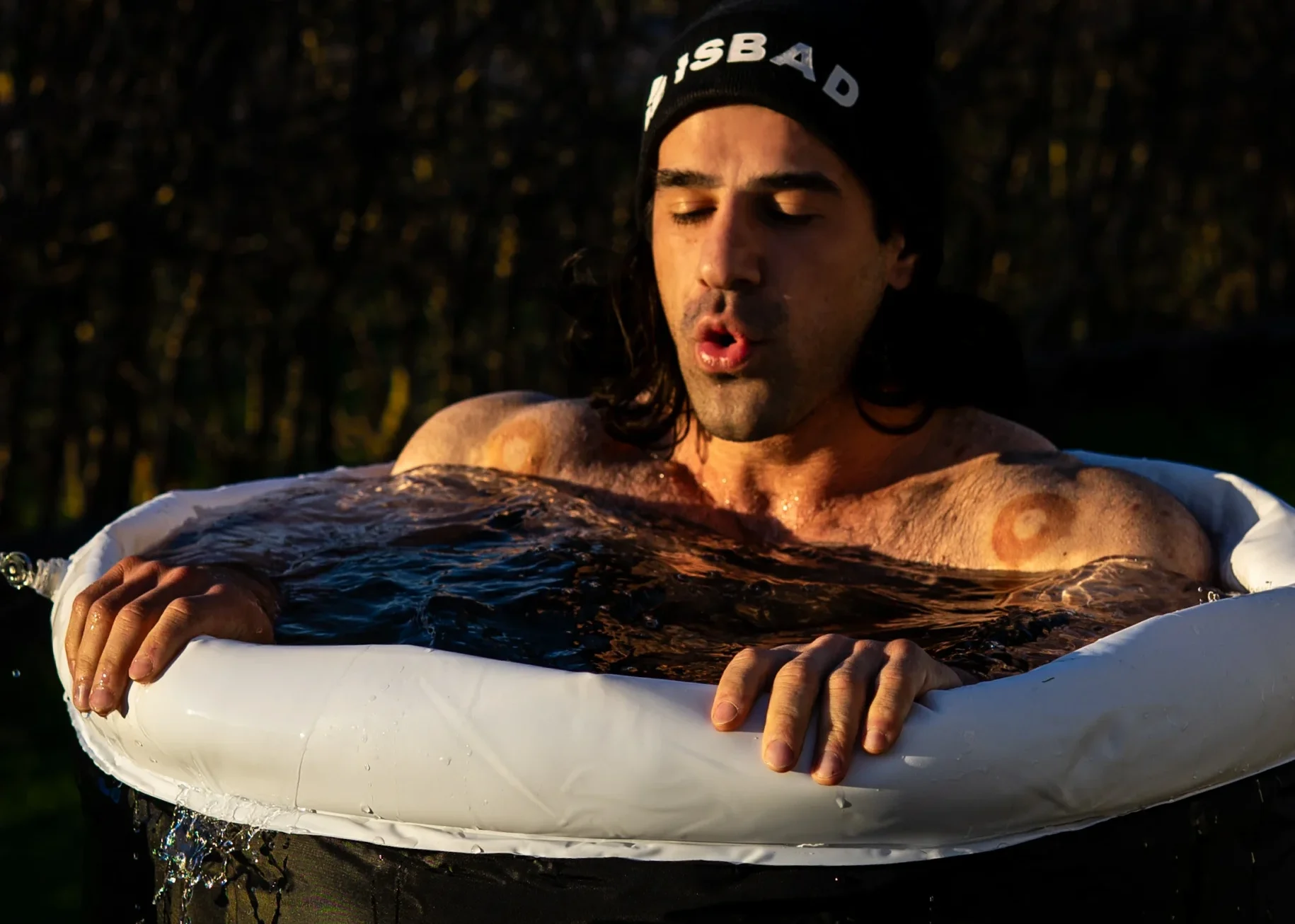How cold baths can improve your sleep quality
Getting a good night's sleep is a fundamental part of a healthy lifestyle. Sleep deprivation not only affects your mood, but also your ability to recover after a long day or a hard workout. For those who have trouble sleeping, a new trend, ice baths, may be the solution. Research and experience suggests that ice baths not only promote recovery, but can also improve your sleep. Here we look at how cold baths can affect sleep and what you should consider to benefit from this practice.
Why is sleep so important for recovery?
Sleep plays a crucial role in the body's recovery. When we sleep, the body undergoes a series of processes that help repair muscles, strengthen the immune system and restore energy levels. Without enough sleep, our health can deteriorate, and we become more susceptible to stress and disease.
For many, however, sleep problems are a recurring challenge. This is where ice baths come in as a potential solution. Cooling down your body before bedtime can have unexpected benefits for both your sleep and recovery.
Ice baths and their impact on sleep
Ice baths, where the body is immersed in cold water (usually around 10-15 degrees Celsius), have been shown to help lower the body's internal temperature. When the body temperature is lowered in this way, it signals to the brain that it is time to rest. The body's natural sleep cycle relies on the body temperature dropping during the night, and taking an ice bath can speed up this process.
In addition to the temperature change, an ice bath can also reduce levels of the stress hormone cortisol. High cortisol levels can interfere with your ability to fall asleep and stay in deep sleep. By lowering these levels, an ice bath can contribute to a more relaxed body and a more stable sleep pattern.
Recovery through ice baths
Many athletes and fitness enthusiasts use ice baths to speed up recovery after physical exertion. The cold reduces inflammation and swelling in the muscles, speeding up the process of healing injuries or muscle strains. For those who exercise regularly, an ice bath before bedtime can both promote better sleep and speed up recovery after exercise.
It is important to understand that the body repairs itself during deep sleep, and by sleeping better, you also improve your muscle recovery. Ice baths can thus act as a dual tool - both to promote sleep and to help the body recover from physical stress.
Practical tips for ice baths
- Time frame: An ice bath should not last longer than 10-15 minutes. More than that can lead to discomfort or even damage to skin and nerves.
- Temperature: The water temperature should be between 10 and 15 degrees Celsius. If it feels too cold, start with slightly warmer water and gradually work your way towards lower temperatures.
- Date and time: An ice bath is best taken about an hour before going to bed. This gives your body time to adjust and gradually sink into a relaxed state.
- Prudence: People with heart or vascular disease should exercise caution and consult a doctor before trying ice baths, as the sudden chill can be stressful for the body.
The health benefits of ice baths
In addition to the positive effects on sleep, ice baths can have several other health benefits:
- Increased blood circulationWhen the body is cooled down in an ice bath, it reacts by increasing blood flow to vital organs. Then, when you get out of the bath, blood flows quickly back to the skin and muscles, which can help increase blood circulation.
- Mental uthållighet: Kalla bad kräver en viss mental styrka och fokus, vilket i längden kan hjälpa till att förbättra din förmåga att hantera stress och motgångar.
- Förbättrad ämnesomsättning: Studier visar att exponering för kyla kan aktivera brun fettvävnad i kroppen, vilket kan hjälpa till att öka ämnesomsättningen och främja fettförbränning.
Summary: try ice baths for better sleep and recovery
Taking a ice bath before going to bed can be a simple but effective way to improve your sleep quality and recovery. By lowering your body temperature and reducing stress hormones, you can achieve a more relaxed and deep sleep. Remember to be careful and gradually get used to the cold, especially if you are not used to it.
So why not try taking an ice bath before bed and see how it affects your sleep and recovery?










